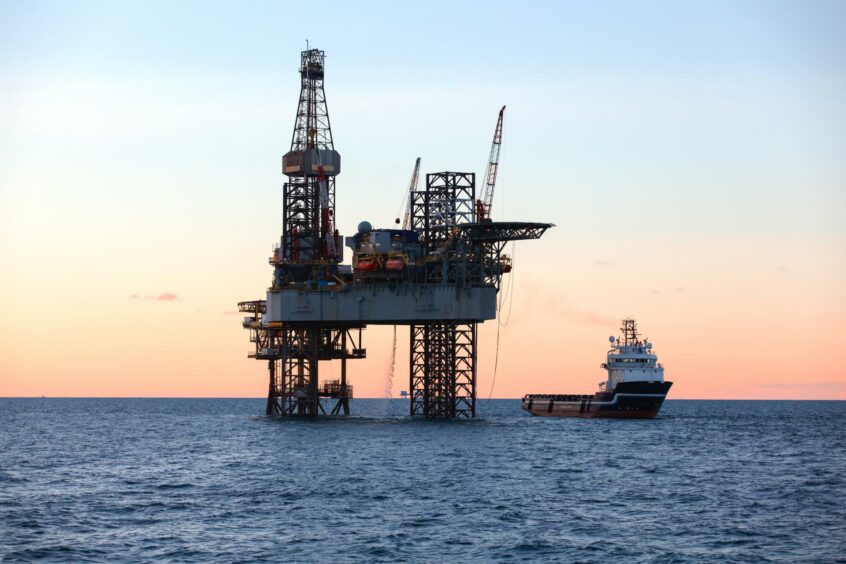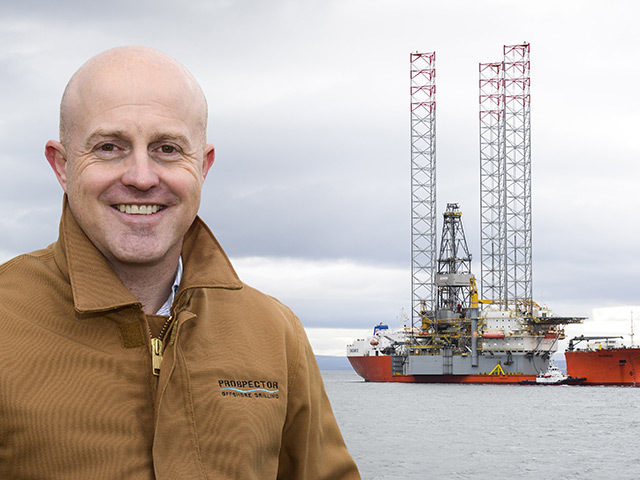
A North Sea drilling industry body has warned the viability of UK renewables projects is at risk unless the UK government changes its policy towards windfall taxes and day rates.
Chairman of the North Sea chapter of the International Association of Drilling Contractors Darren Sutherland said challenging market conditions are leading to rig operators leaving for regions which offer better rates and longer-duration contracts such as Australia.
“The drilling industry is capital intensive. We have stakeholders that must be satisfied financially,” Mr Sutherland told Energy Voice.
“It is not a case of not wanting to work in the North Sea, but it is becoming financially untenable for drilling rigs to remain awaiting longer-term work programmes to materialise and we do not see the situation changing”.
According to analysis by Westwood Global Energy Group, the announcement of a 10% increase to the UK Energy Profits Levy (EPL) in November 2022 has led to rig operators departing the region for better prospects overseas.
Westwood said in March that the market is now 40% leaner than it was in 2017.
Drilling industry ‘tip of the spear’ for renewables
Mr Sutherland said the drilling industry was the “‘tip of the spear’ when it comes to creating wells, whether that’s for oil, gas or carbon capture and storage (CCS)”.
A recent report released by Offshore Energy UK (OEUK) estimates that by 2030, “70% of the demand from offshore wind activity and 90% of carbon transport and storage requirements are likely to be dependent on the same supply chain capabilities that already service oil and gas”.
The report warned government policies which constrain oil and gas licensing and development activity could threaten low carbon energy expansion in the UK.
Mr Sutherland said the OEUK report reaffirmed the concerns of the IADC and he believes not enough is being done by the UK government to avoid the loss of rigs in the North Sea.
“We are seeing some changes, but it feels like too little too late,” he said.
“For example, we welcome recent news on the issuing of new licences, but the timeframe from the issuing of a licence to starting drilling can be anywhere from three to five years.
“The drilling contractor community cannot wait around hoping that happens”.
Supply chain needs support
Mr Sutherland said he is not convinced policy makers are supporting an adequate supply chain in need of investment following the COVID pandemic and recent downturns.
“The North Sea supply chain needs to be able to see a future here, otherwise companies will invest in regions where they will get a better return,” he said.
“We need to see a longer-term vision for the North Sea with a stable fiscal regime to make it more attractive for businesses to invest here.
Mr Sutherland said the North Sea drilling industry had held out for many years hoping for a rebound, but it had yet to materialise.
“Rigs will leave and the market will tighten,” he said.
“When that happens and there are not enough rigs to support demand, costs will rise and projects that were viable will become economically unviable”.
Earlier this month, the OEUK warned in its economic report that up to £100bn of North Sea energy developments are in FID doldrums due to political uncertainty.
The figure relates to oil and gas, carbon capture and storage (CCS), hydrogen and offshore wind.

 © Supplied
© Supplied